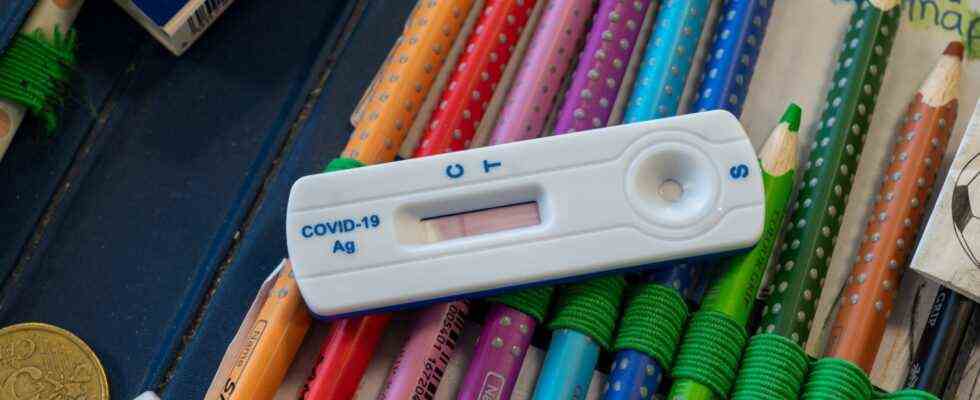Status: December 26, 2021 8:40 a.m.
Teachers’ associations are concerned about the end of the holidays in the coming year, especially because of the Omikron variant. Returning to distance learning shouldn’t be a taboo. The RKI reports significantly fewer new infections, but also refers to the lower informative value of the data.
At the moment, children and young people across Germany are enjoying the Christmas holidays – but school will start again in the New Year. With a view to the expanding Omicron variant, teachers’ associations are already warning against holding lessons in the classroom in any case.
“The Omikron variant worsens the pandemic situation massively – also in schools,” emphasized the chairman of the Association for Education and Upbringing (VBE), Udo Beckmann, to the newspapers of the editorial network in Germany. The variant of the pathogen, which was first discovered in South Africa, has now been detected in all German federal states. The latest figures from the Robert Koch Institute (RKI) come from December 22nd: Up to this point in time, almost 3200 corona cases nationwide were due to an infection with Omikron.
Experts fear that the corona infections due to Omikron could soon increase rapidly. Especially in view of this risk, Beckmann warned:
In any case, the motto of politics can no longer mean that classroom teaching must be provided at all costs.
Alternation and distance lessons “must not be taboo”
Beckmann urged that the Conference of Ministers of Education and Cultural Affairs should come together quickly in order to then weigh up, in close consultation with virologists, “what is responsible with regard to the health of teachers and students”. Returning to alternating or distance learning should not be a taboo either.
The chairman of the German Teachers’ Association, Heinz-Peter Meidinger, was similarly concerned. Above all, he referred to the still low vaccination rate among schoolchildren. According to the RKI, 257,476 children between the ages of five and eleven were vaccinated nationwide by Christmas Eve. The numbers for the age group of 12 to 17 year olds are already looking better: According to the RKI, the rate of those who were fully vaccinated by December 23 was 51.4 percent.
“Short, hard lockdown” instead of months of open and closed
Should a lockdown be necessary again in the coming year due to the sharp increase in the number of infections, “the schools cannot be exempted from this,” said Meidinger:
A hard, short lockdown, including school closings with distance learning, would be better in case of doubt than having a situation for months in which it is sometimes open and sometimes closed.
So far, the ministers of education and the Federal Minister of Education, Bettina Stark-Watzinger, had spoken out in favor of keeping schools open at all times. However, the FDP minister had advised before Christmas that schools should prepare for possible regional closings.
Seven-day incidence drops to 220.7
According to the RKI, the number of new infections reported in Germany is currently falling. In the past 24 hours, the institute recorded 10,100 new cases. The seven-day incidence drops to 220.7 compared to 249.9 the previous day and a value of 315.4 a week ago. However, due to the low level of test and reporting activity in the health authorities, the data on the holidays are much less meaningful.
In addition, 88 people died within one day in connection with a corona infection, the RKI said. Since the outbreak of the pandemic in Germany, the institute has counted more than 110,300 corona deaths. More than 6.99 million citizens have contracted the virus since then. More than 6.11 million people are considered to have recovered from infection.

